We’d be Smart to Practice This Habit NOW!
I come from meager and humble circumstances. I remember nights when my mother served my sister and I a gravy made from flour, water, and some sort of seasoning over Wonderbread® toast for our dinner. We had two pairs of shoes each—one for school/play and one for wearing to church on Sunday. If the school/play shoes got holes in the soles, inserting cardboard into them (that we cut to fit), was the modus operandi.
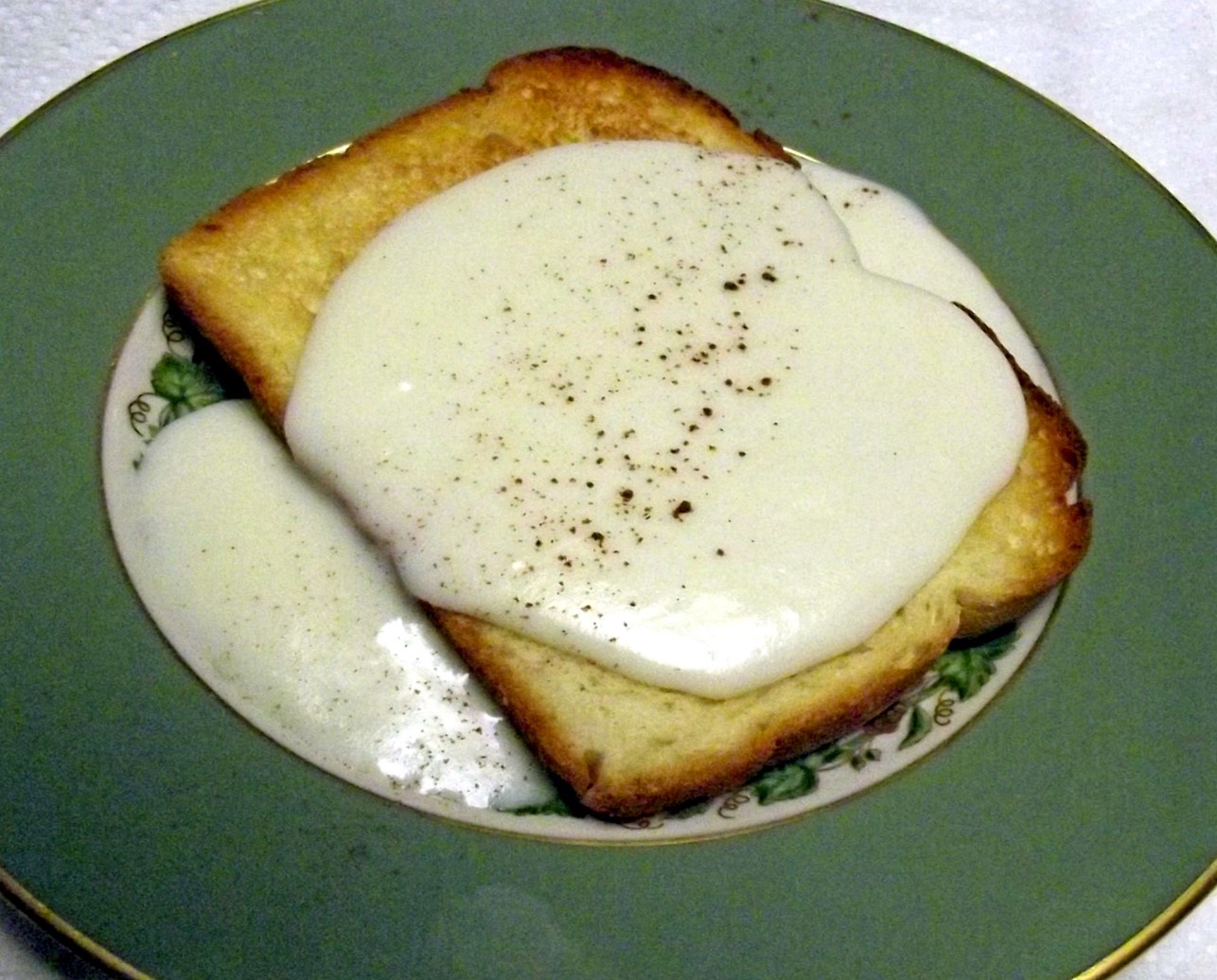
There weren’t oodles of toys; Sue and I had one Tiny Tears® dolly each and a few books to share. We made our own doll clothes out of worn-out clothes that Mom tucked away for us to use for that purpose. We loved shoe boxes; they made the best doll beds, or we’d stack and glue them together and make our own versions of doll houses, complete with homemade curtains and furniture. Such fun!
I look back on my history with fondness. My sis and I actually had a lot of fun making our own toys and using our imaginations. We learned to create and mastered the art of “making do.”

I bet many of you have similar upbringings, yes? But aside from connecting, I share all this as an introduction to my point: the ability to “make do” is a skill that has served me well my entire life, and I believe it’s a skill we all may need in the near future.
So with that said, here’s an easy place to start this practice of “making do”—establishing the habit of reusing zippered plastic bags. Now lots of you are probably saying, “DUH! I already do that.” Yay and bravo to you who are ahead of the game. But for those that haven’t established this M.O. in their kitchen routine, you’ll want to read on. (And you seasoned re-users might find a new idea or two, as well.)
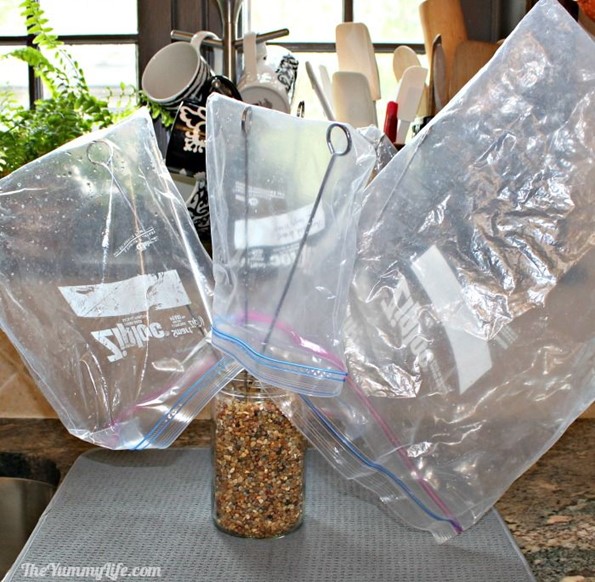
First, though, let’s look at how to keep these bags clean and in tip-top shape. They serve us best when they’re squeaky clean; washing them in hot, soapy water is best. I use a soft bristled bottle brush to get into the bag’s corners. Once rinsed in hot water and hung up to dry, they’ll be ready to carry on. This process prevents the growth of bacteria, mildew, and mold. I’m not a fan of keeping bags that’ve held greasy stuff—too difficult to remove the residue.
OK, besides holding leftovers or using for freezer food storage, what else can you do with them? Consider these ideas (and if you have a minute, would you comment below with how you use ‘em, too?)
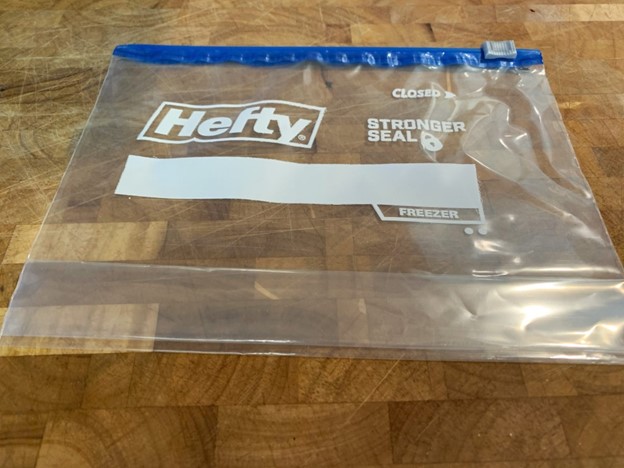
When travelling or just commuting:
- Keep essentials organized when travelling (phone, keys, wallet, meds) and safe from spills or leaks in your purse or travel bag. They’re great for holding travel snacks and hand sanitizer, too.
- Use one to keep your passport and other important documents clean, dry, and easy to access.
- Use them to keep your dirty laundry separated from your clean clothes in your suitcase or backpack.
- Keep two gallon-size zippered bags in the car as emergency “boots.” Insert foot, zip bag as far as you can and they’ll pretty well get you from car to door. (Plastic grocery or trash bags will do the same thing, but they’re not as tough as a zippered plastic bag.)
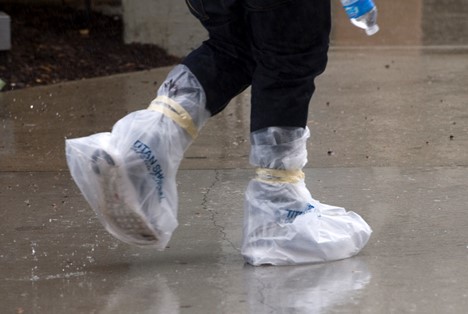
In the kitchen:
- Use them as piping bags for decorating cakes and cupcakes. Fill with frosting, make a small snip in a bag corner, and pipe away.
- Use one to “chop” nuts: fill bag with nuts, close tightly, wrap bag in a terry hand towel, lay it all flat on the counter and tap with a hammer.
- Extend life of greens: wash and spin them dry, spread them out on a length of paper towels; roll them up nice and tight, insert roll into a zippered bag, roll the bag to remove excess air and close bag.
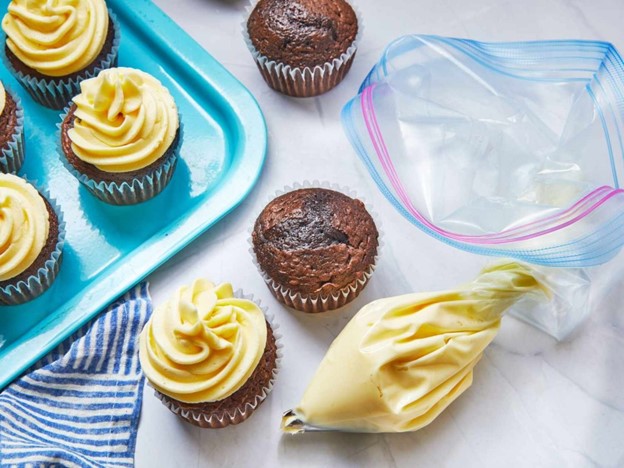
In the garden:
- Use one to spread and automatically thin fine seeds (such as carrot): fill bag with three cups sand, add package of seeds; tightly close bag and shake well to thoroughly mix seed throughout the sand. Once seed is distributed well, snip one corner of the bag and carefully pour contents down your pre-prepped garden row.
- Place all garden seeds in a zippered bag and store this in the freezer until needed for the following year. This protects germination potential. I have seeds that are five or more years old that are still reliably germinating.
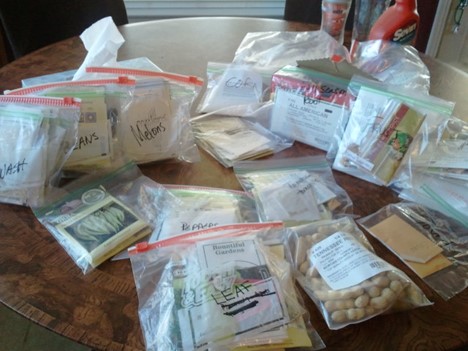
So back to the “humble and meager” circumstances introduction: We want to remember that “A fair wind never blows forever.” There’s a strong sense in the air that trying times are coming, times that could place us all in humble and meager circumstances. Wouldn’t we be smart to embrace the practice of “making do” NOW? Re-using plastic zippered bags is an easy way to start.
 Alice Osborne
Alice Osborne
Weekly Newsletter Contributor since 2006
Email the author! alice@dvo.com
Sources:
- www.nifdthhe.shop
- www.wikipedia.com
- www.theyummylife.com
- www.techgearlab.com
- www.jdohdds.com
- www.linkedin.com
- www.crazygreenthumbs.com
